Sakhina's story
Sakhina is a Rohingya refugee living in the world's largest refugee camp in Cox's Bazar. With the support of Caritas Bangladesh, Sakhina and her daughter, Noor, were able to access essential support, including clean water and sanitation.
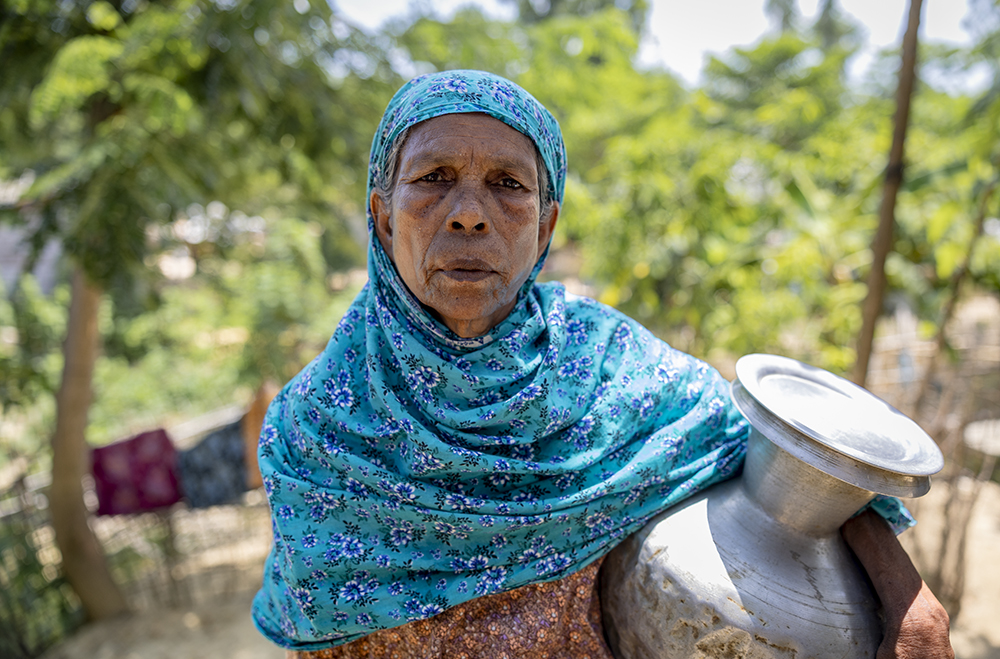
Sakhina, a Rohingya refugee, carries a vessel of water as she looks at the camera. The vessel and tap water access was provided by Caritas Australia's partners, Caritas Bangladesh. Photo: Caritas Australia
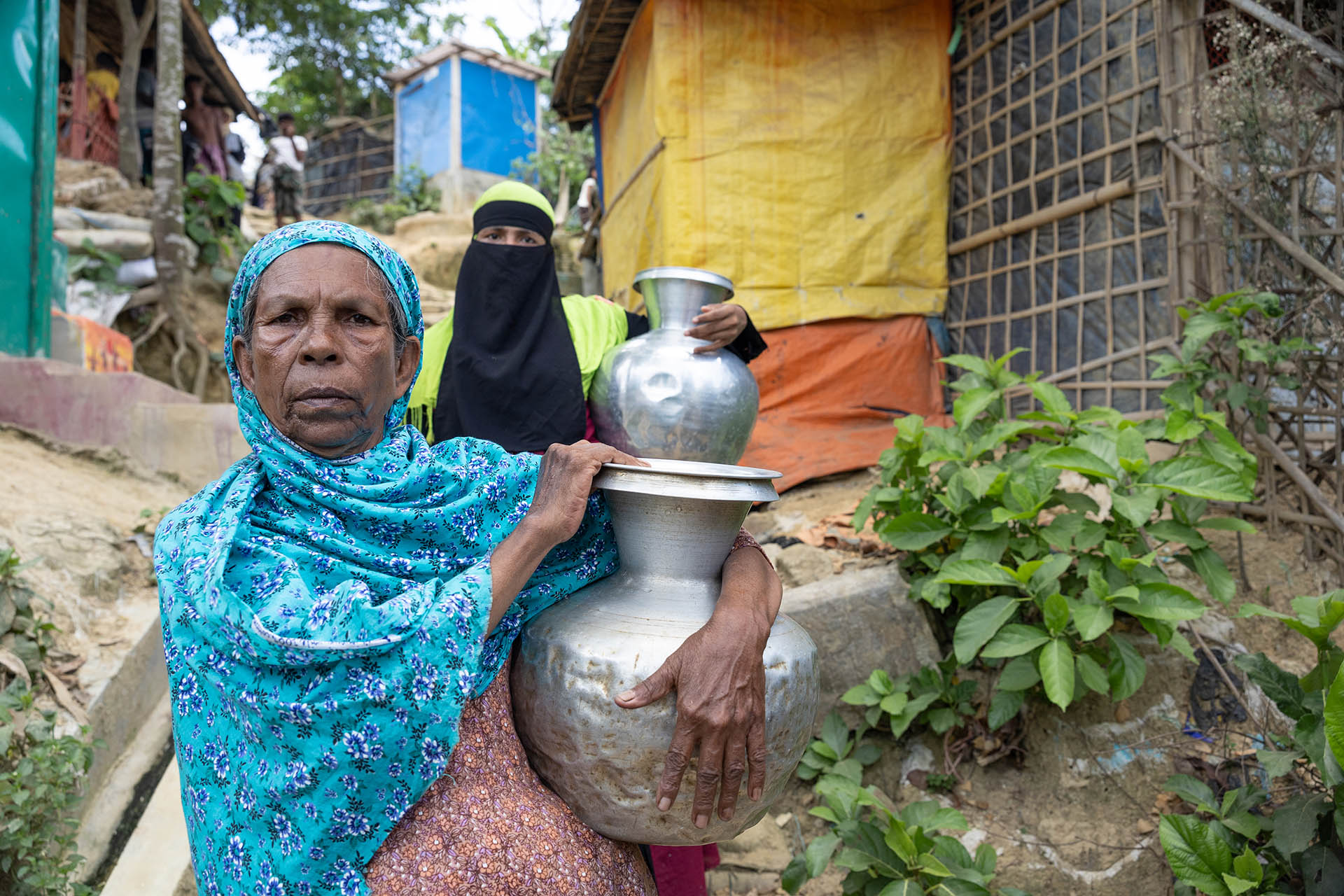
Sakhina carrying water near her home inside Cox's Bazar refugee camp. Photo: Caritas Australia
The refugee camp in Cox's Bazar is densely populated, and home to over one million displaced people.
Sakhina lives in a small hut made of bamboo and tarpaulin in one of the districts served by Caritas Bangladesh, with her daughter, Noor. Noor has a disability, which compounds her vulnerability in the camp.
In 2017, Sakhina was forced to flee with them to Bangladesh. She recalls shots being fired into her home and having to escape by going under the house and crawling away. She hid for ten days with no food, before being able to flee to the Myanmar-Bangladesh border. When reaching the border she and her family didn’t drink water for 3 days, and were forced to drink from an unclean river to survive.
Too many people died in our neighbourhood...the bullets were pouring down.
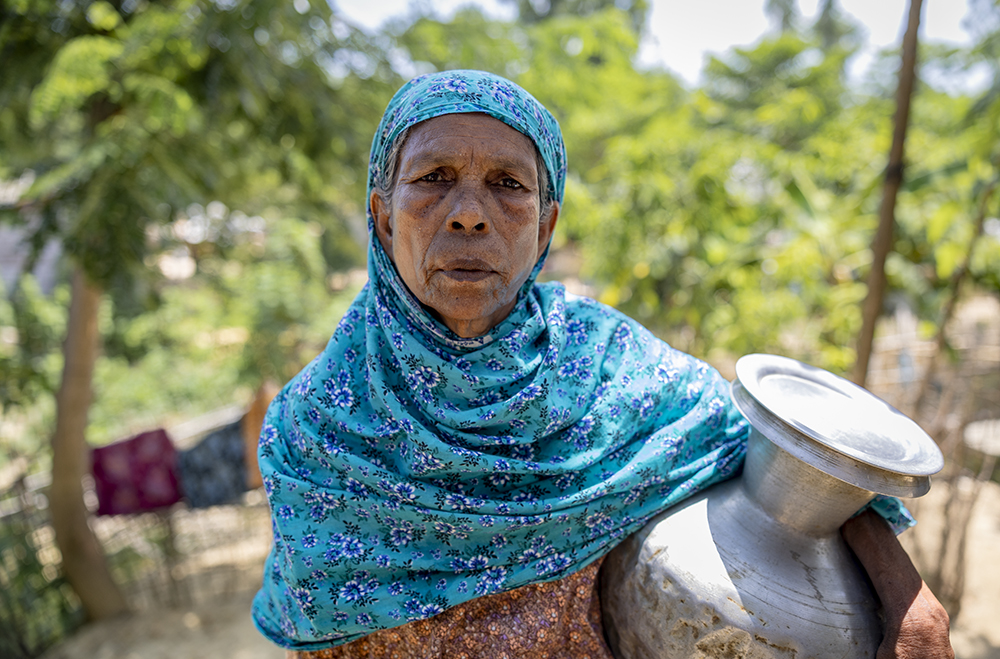
Kutupalong Refugee Camp in Cox's Bazar, Bangladesh, where many Rohingyas like Sakhina sought shelter, became the largest and one of the most densely populated refugee settlements in the world.
The conditions in these camps, characterised by overcrowding, limited access to clean water and sanitation, high rates of fire outbreaks, inadequate healthcare, and increasingly high crime rates have posed significant challenges to the wellbeing and safety of the Rohingya refugees living there.
Sakhina remarked that she is always worried about the safety of her family, particularly her daughter Noor, who heavily relies on Sakhina as a primary caregiver to survive.
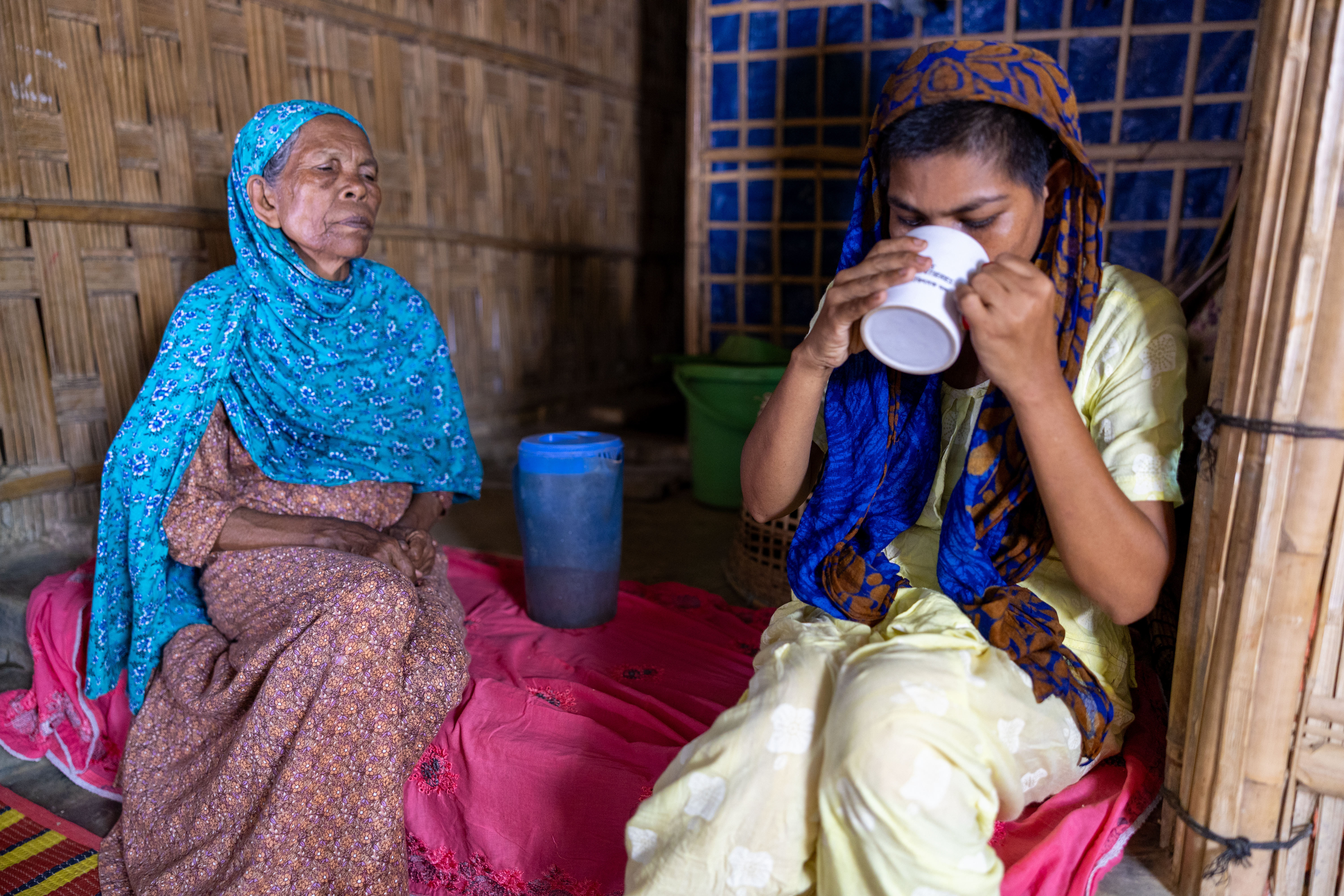
Sakhina and her daughter Noor in their home in the Kutupalong Refugee Camp in Coxs Bazar. Photo credit: Caritas Australia.
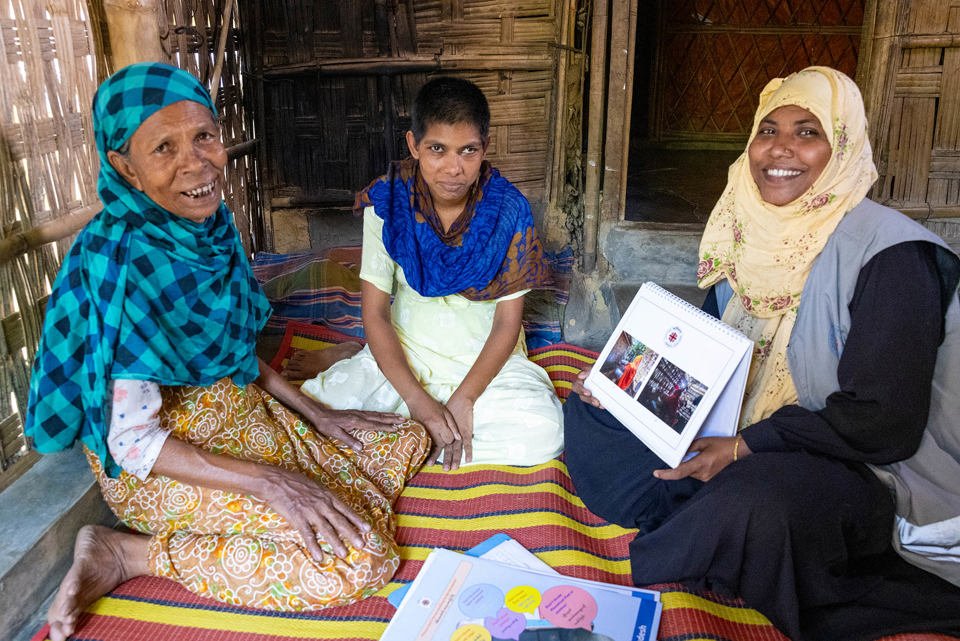
Sakhina with her daughter Noor and Rehena from Caritas Bangladesh. Photo: Caritas Bangladesh
Through the support of Caritas Bangladesh, Sakhina’s family now has reliable access to clean, safe drinking water. Hygiene support and training is available in the Rohingya language and an accessible toilet was installed close to their home, which means Sakhina’s daughter can go to the bathroom without needing assistance.
Cox’s Bazar is just one location – there are many places like it all over the world, and millions of people trapped in similar circumstances to Sakhina.












